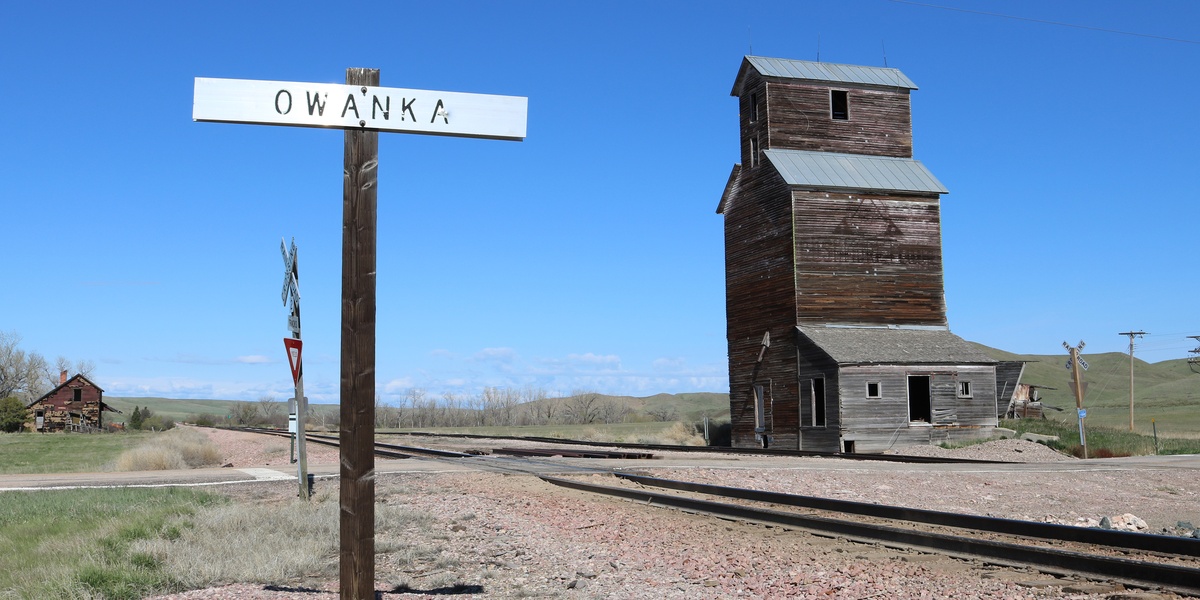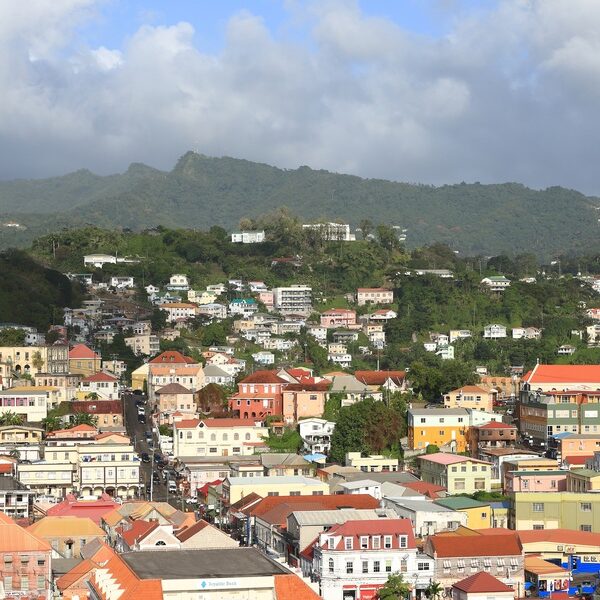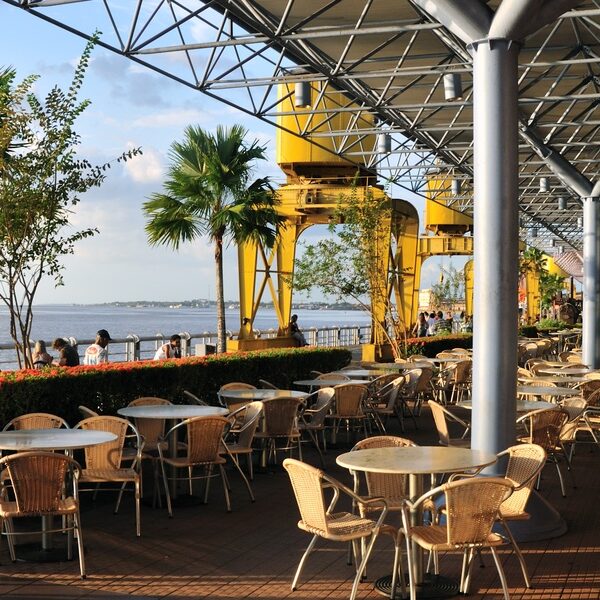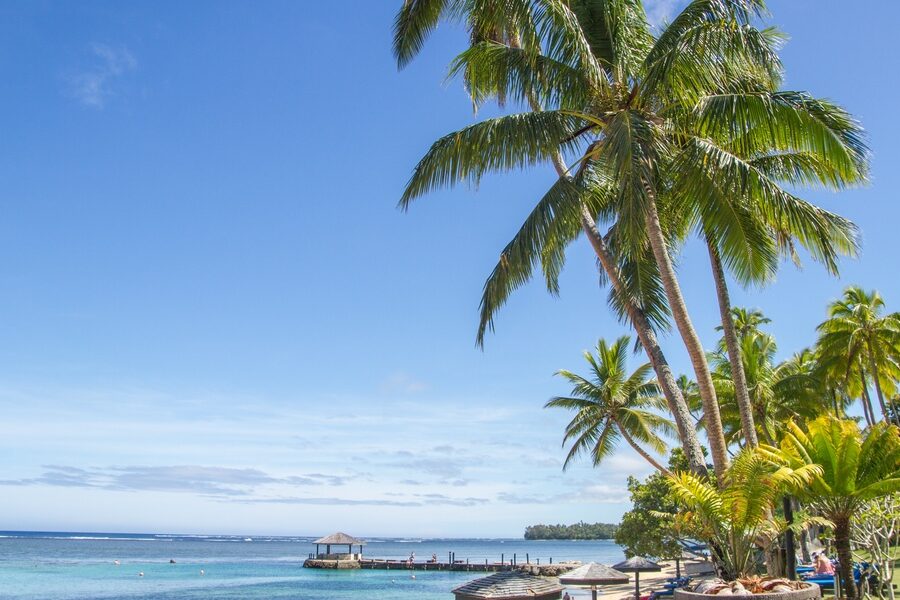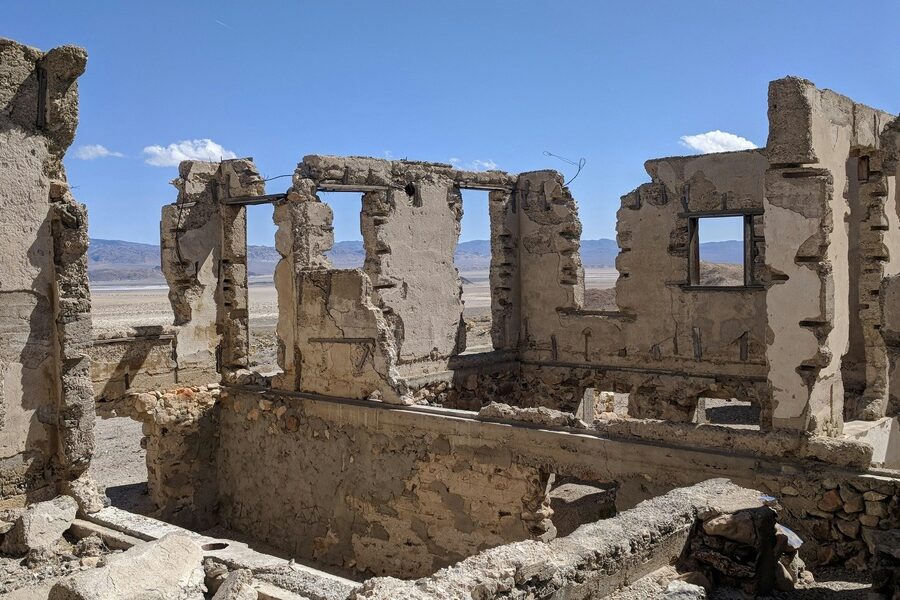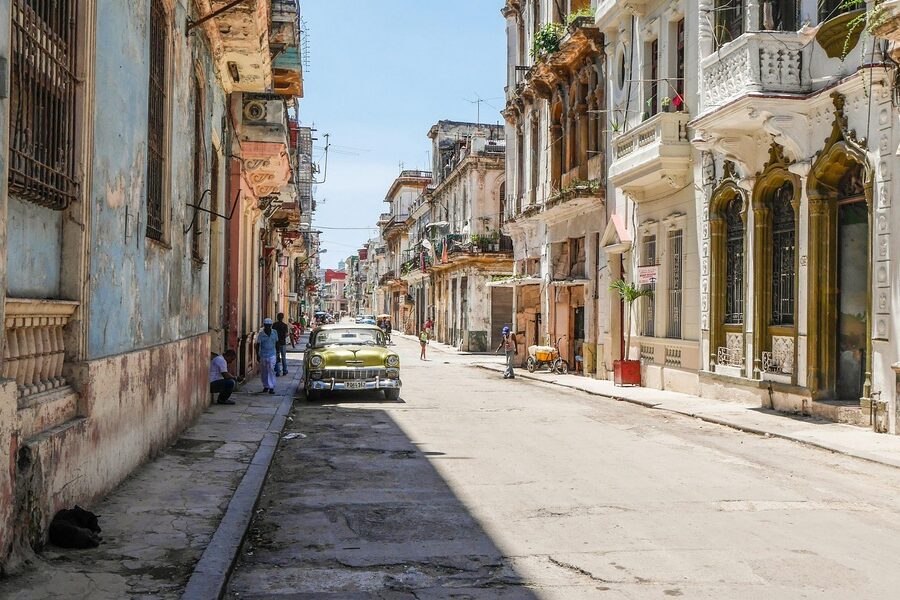South Dakota’s wide plains and the Black Hills keep quiet reminders of boom-and-bust eras: abandoned storefronts, foundations, and mining scars that map a different pace of life. These ghost towns are part history lesson, part outdoor detour, and they reward a little preparation before you go.
There are 21 Ghost Towns in South Dakota, ranging from Ardmore to Wetonka. For each town the list shows County,Country,Coordinates (lat, lon) so you can locate, research, and plan visits — you’ll find below.
How can I visit these ghost towns safely?
Check access and ownership before you go, carry water and a basic first-aid kit, and expect limited cell service in remote areas. Use the provided Coordinates (lat, lon) to plot routes, avoid entering unsafe structures, leave artifacts in place, and let someone know your itinerary.
Are these sites on public land or private property?
It varies: some ruins sit on public land managed by federal or state agencies, while others are on private ranches or town lots. Use county records or land-management maps and respect posted signs; when in doubt, seek permission from landowners.
Ghost Towns in South Dakota
| Name | County | Country | Coordinates (lat, lon) |
|---|---|---|---|
| Ardmore | Fall River | USA | 43.02, -103.81 |
| Spokane | Custer | USA | 43.80, -103.41 |
| Trojan | Lawrence | USA | 44.33, -103.82 |
| Owanka | Pennington | USA | 44.02, -102.60 |
| Capa | Jones | USA | 44.07, -100.86 |
| Etta | Pennington | USA | 43.88, -103.45 |
| Imlay | Pennington | USA | 44.05, -102.39 |
| Scenic | Pennington | USA | 43.79, -102.55 |
| Forest City | Potter | USA | 45.02, -100.03 |
| Pactola | Pennington | USA | 44.08, -103.48 |
| Smithville | Pennington | USA | 44.13, -103.01 |
| Creston | Pennington | USA | 43.91, -102.43 |
| Gothland | Brown | USA | 45.66, -98.33 |
| Manchester | Kingsbury | USA | 44.35, -97.71 |
| DeGrey | Hughes | USA | 44.34, -99.87 |
| Redig | Harding | USA | 45.54, -103.49 |
| Roubaix | Lawrence | USA | 44.19, -103.68 |
| Okaton | Jones | USA | 43.94, -100.99 |
| Swett | Bennett | USA | 43.23, -101.35 |
| Turton | Spink | USA | 45.04, -98.50 |
| Wetonka | McPherson | USA | 45.69, -98.79 |
Images and Descriptions
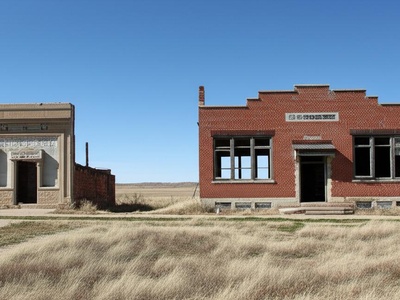
Ardmore
Once a bustling railroad town on the Nebraska border, Ardmore is now nearly abandoned. Visitors can see numerous decaying structures, including a large school and a bank, offering a stark look at the challenges that led to the decline of many Great Plains settlements.
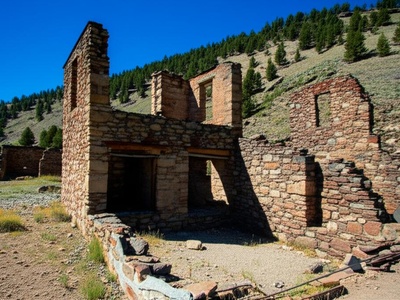
Spokane
A classic Black Hills mining camp, Spokane produced gold, silver, and lead until its closure in the 1940s. The site features impressive stone ruins of the mine buildings and a school, making it a popular and photogenic destination for ghost town explorers.

Trojan
This former company town served the productive Trojan Mine near Lead. After the mine closed in the 1950s, the town was abandoned. Today, only scattered foundations and old mining remnants mark the spot where a thriving community once supported the Black Hills gold boom.
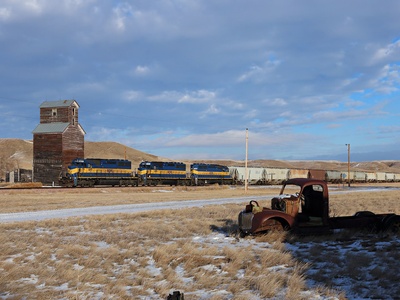
Owanka
Owanka was a prosperous railroad town until the tracks were realigned, leading to its decline. Its most iconic remnant is the imposing two-story brick bank building that stands defiantly on the prairie, attracting photographers and history buffs to this semi-abandoned site.

Capa
Bypassed by the interstate, the prairie town of Capa faded into obscurity. A beautiful white church and a dilapidated schoolhouse are the most prominent structures left standing. The site is a poignant testament to the small farming communities that once anchored the region.
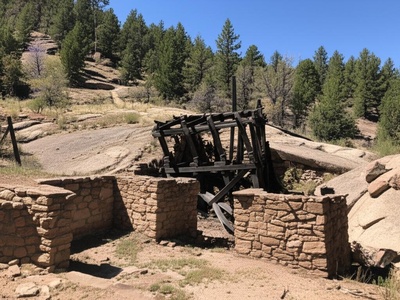
Etta
Centered around the Etta Mine, famed for its massive spodumene crystals, this Black Hills site was more of a camp than a town. Today, visitors can find old mine workings, ruins, and foundations near Keystone, offering a glimpse into South Dakota’s unique mining history.
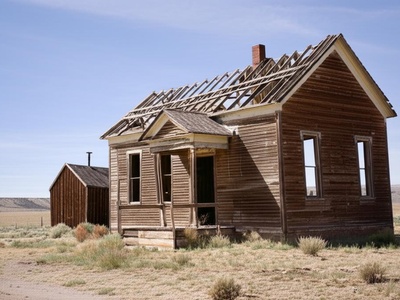
Imlay
A semi-ghost town with just a handful of residents, Imlay has several accessible abandoned buildings, including a lovely old schoolhouse and a general store. Its quiet, lonely atmosphere on the vast plains perfectly captures the story of rural America’s slow decline.

Scenic
Positioned on the edge of the Badlands, Scenic gained notoriety when the entire town was put up for sale. Though now privately owned, its collection of weathered buildings, including an old saloon and jail, make it a popular and easily accessible roadside ghost town.
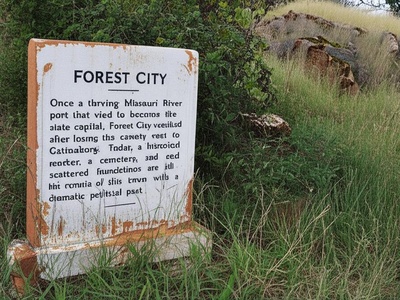
Forest City
Once a thriving Missouri River port that vied to become the state capital, Forest City vanished after losing the county seat to Gettysburg. Today, a historical marker, a cemetery, and scattered foundations are all that remain of this town with a dramatic political past.
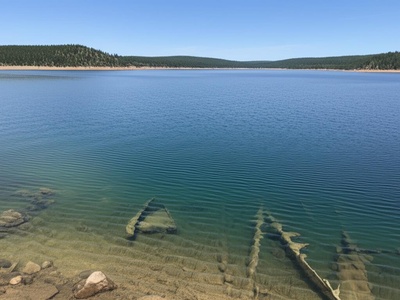
Pactola
The original gold rush town of Pactola now lies deep beneath the waters of Pactola Reservoir in the Black Hills. The entire town was intentionally flooded in the 1950s to create the lake, making it a true ghost town with a unique and inaccessible history.
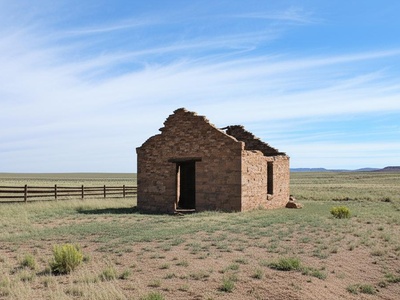
Smithville
A vital stagecoach stop and ranching hub on the historic trail between Cheyenne and Deadwood. The primary remnant is a solid stone building, once an inn, that stands alone on private land—a silent monument to the region’s pioneer transportation and trade routes.
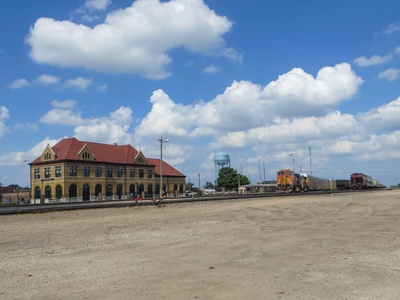
Creston
An isolated former railroad town near the Cheyenne River, Creston is famous for its remote, “end of the road” atmosphere. With very few residents and several decaying buildings, it stands as an iconic example of a nearly forgotten settlement on the vast South Dakota prairie.
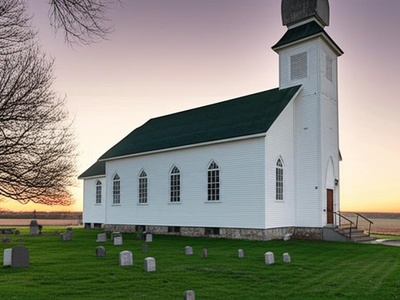
Gothland
Founded by Swedish immigrants, Gothland was a small farming community that has since disappeared. However, the beautifully maintained Gothland Sjo Lutheran Church and its cemetery still stand as a proud and peaceful monument to the area’s strong Scandinavian heritage.

Manchester
A modern ghost town with a tragic story, Manchester was completely obliterated by an F4 tornado in 2003. The town was officially unincorporated, and today only empty streets, driveways, and foundations remain where a quiet prairie community once stood.
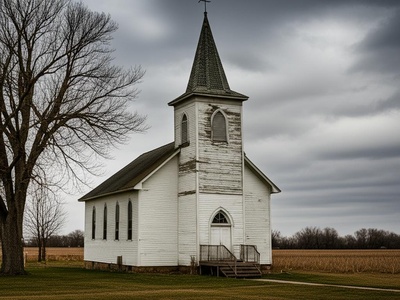
DeGrey
This small agricultural community near the Missouri River has dwindled to just a few residents. Its most prominent landmark is the beautiful and well-preserved DeGrey Church, which still holds occasional services and serves as the historic anchor for this nearly-vanished town.
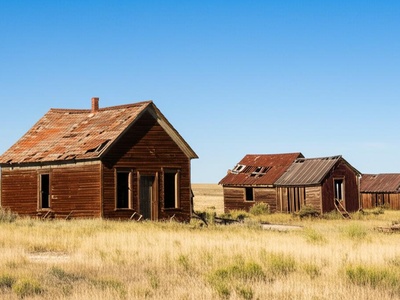
Redig
In the vast, open rangeland of Harding County, Redig was once an essential post office and supply point for local ranchers. Now, it is a collection of collapsing wooden structures slowly being reclaimed by the prairie, a true ghost town of the remote high plains.
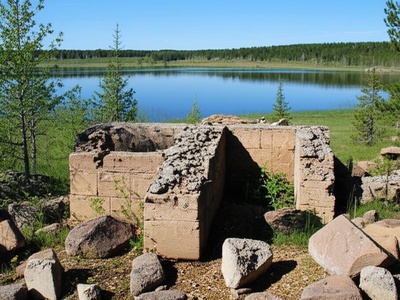
Roubaix
A former Black Hills gold mining camp that boomed in the late 19th century. After the mines closed, the town faded away. Visitors can find foundations and mining relics near the modern Roubaix Lake Campground, which occupies part of the original townsite.
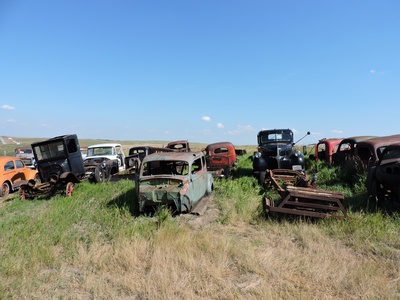
Okaton
Best known for its now-closed roadside museum, Okaton is a classic semi-ghost town just off I-90. The unique, futuristic dome of the old museum, an abandoned school, and other structures make it a memorable and quirky stop for travelers exploring rural South Dakota.
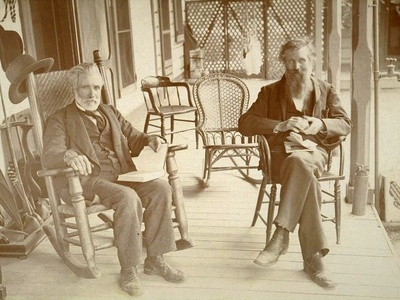
Swett
This tiny hamlet, consisting of little more than a notorious tavern and a house, made national news when it was put up for sale. Now effectively abandoned, the Swett Saloon stands as a lonely landmark to a once-lively gathering spot for local cowboys.
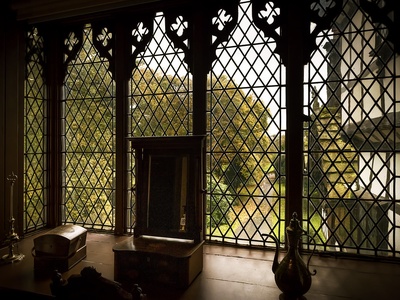
Turton
Turton is a semi-ghost town with a small population but numerous abandoned buildings that speak of a more prosperous time. The deserted two-story brick bank is a standout structure, typifying the decline of many small railroad towns on the northern plains.
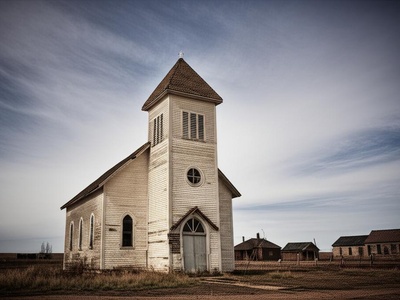
Wetonka
Wetonka, meaning “Big Sun,” was a farming community that declined after the railroad left. While a few residents remain, the town is defined by its abandoned church, school, and homes, offering a quiet, melancholy look into the region’s agricultural past.

